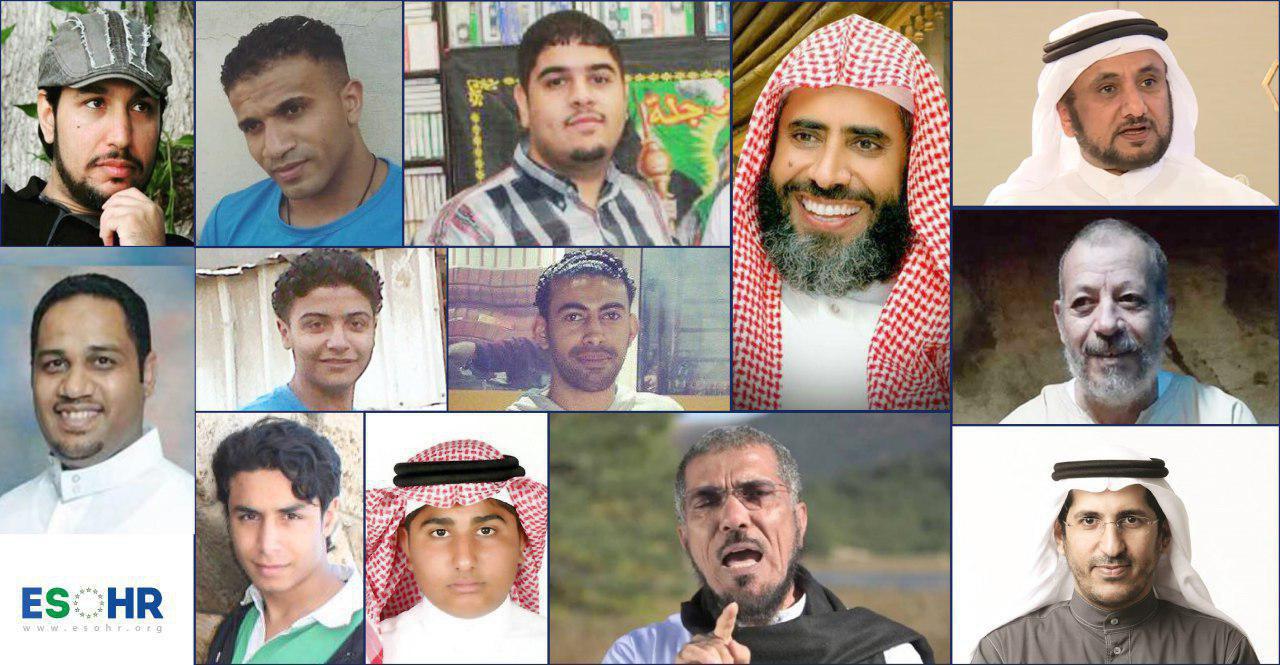
Since Saudi Arabia killed 37 citizens on 23 April 2019, in a mass execution slaughter, concerns have been increasing for the lives of at least 20 detainees, with available information indicating serious violations of the conditions for fair trials.
There is a general lack of transparency in the Saudi government’s actions in the cases of detainees, particularly those facing the death penalty. The European Saudi Organisation for Human Rights (ESOHR) has already managed to document a number of cases involving crimes, such as torture and various abuses of detainees’ rights. The 20 detainees facing execution are at different phases of prosecution: some have received final, confirmed sentences that may be carried out at any moment, others are awaiting appeal of their preliminary sentences, while still others remain at trial with the Public Prosecution seeking the death penalty for them. The ESOHR estimates that there are dozens if not hundreds of detainees facing execution, in both political and criminal cases.
While the recent mass execution included at least six children, three other children remain at risk of execution after final sentences were issued against them: Ali al-Nimr, Dawood al-Marhoun, and Abdullah al-Zaher. They were sentenced to death in 2014, based on charges pertaining to their exercise of legal rights, participation in demonstrations, and other charges of violence for which no hard evidence was provided.
Among the twenty on death row, three of them – Hussein al-Awjami, Mustafa al-Khayyat, and Jaffar al-Faraj – remain ignorant, along with their relatives, of the legal stage of their sentences despite receiving preliminary death sentences long ago. This reflects the Saudi judiciary’s lack of even the most basic elements of justice.
Furthermore, eight detainees are facing execution after the Public Prosecution sought the death penalty for them based on non-serious charges, despite information confirming that many of them were tortured with the goal of extracting confessions. Among them, four were prosecuted in one case, along with female human rights advocate Israa al-Ghomgham: her husband, Mr. Mousa al-Hashim, Ahmed al-Matroud, Ali al-Awayshir, and Khalid al-Ghanim. These four were charged for peaceful activities, such as demonstrating and exercising legal rights like blogging on social media networks. The Public Prosecution had earlier retracted its petition for the death penalty against Israa al-Ghomgham, while retaining it against her husband and the others in her group, even though they face very similar charges. The other four are Sheikh Salman al-Ouda, Dr. Ali al-Amri, Sheikh Awad al-Qarni, and researcher Hassan Farhan al-Maliki, for whom the Public Prosecution sought the death penalty on charges similar to those against the victims executed in the April massacre, such as sowing corruption in the land, calling for regime change, and inciting public opinion.
In addition, a Jordanian citizen, Hussein Abu al-Khair, is facing a death sentence on drug charges. His case remains in appeal after he was again sentenced to death after an unfair trial.
The ESOHR believes that Saudi Arabia’s mass execution of 37 citizens is causing serious and valid concerns for the lives of 20 detainees, requiring extraordinary and serious efforts from all parties involved.
So far, Saudi Arabia has escaped any decisive international reaction and has not initiated effective international accountability for those responsible for a number of issues such as the war in Yemen and the killing of journalist Jamal Khashoggi. This encourages the country to kill more people through arbitrary, summary, and unjust procedures. The alarming and escalating indicators of executions of new groups are overwhelming, and there is no sign that Saudi Arabia is seeking to do right by victims, apply justice, and bring an end to political executions.
